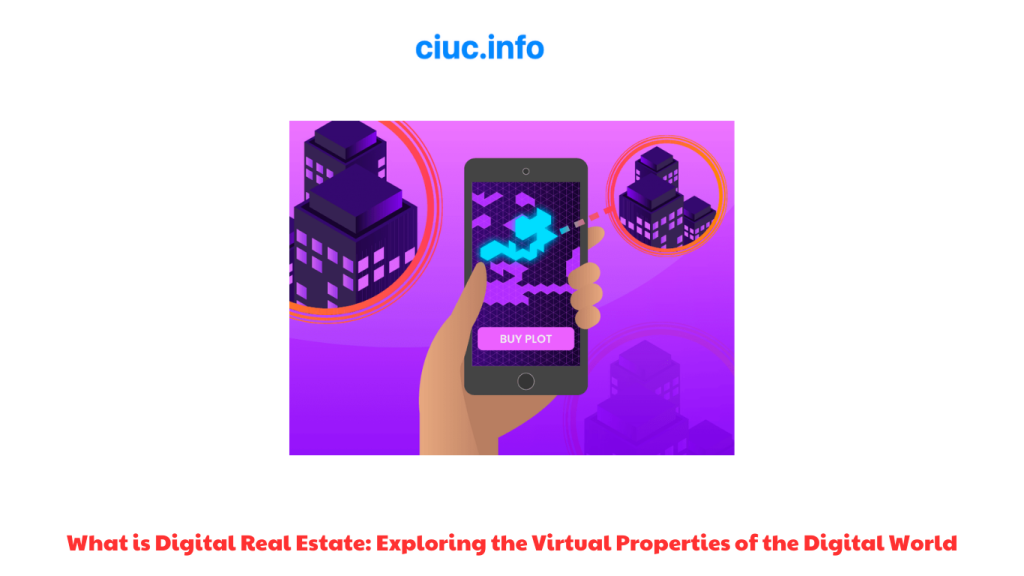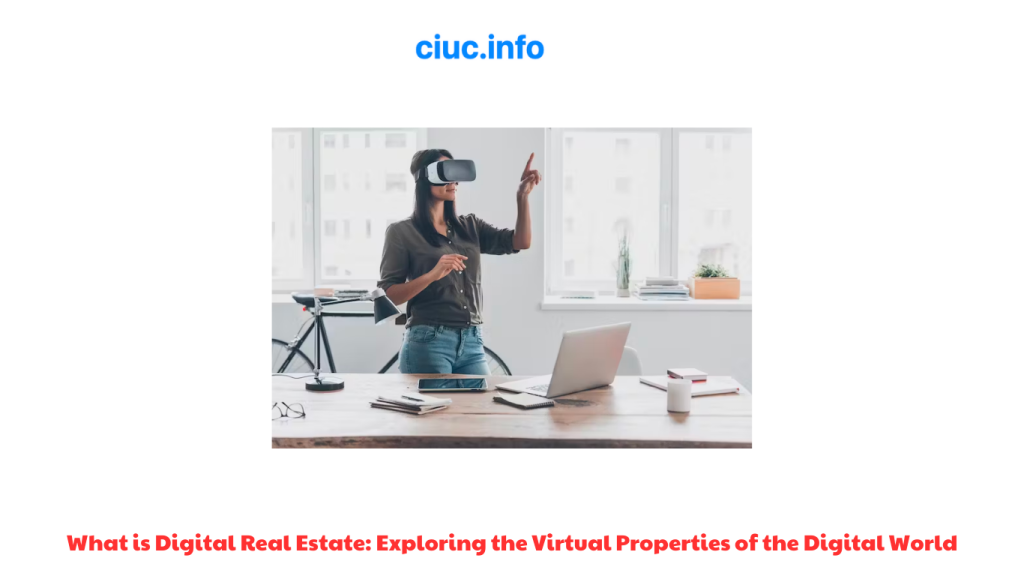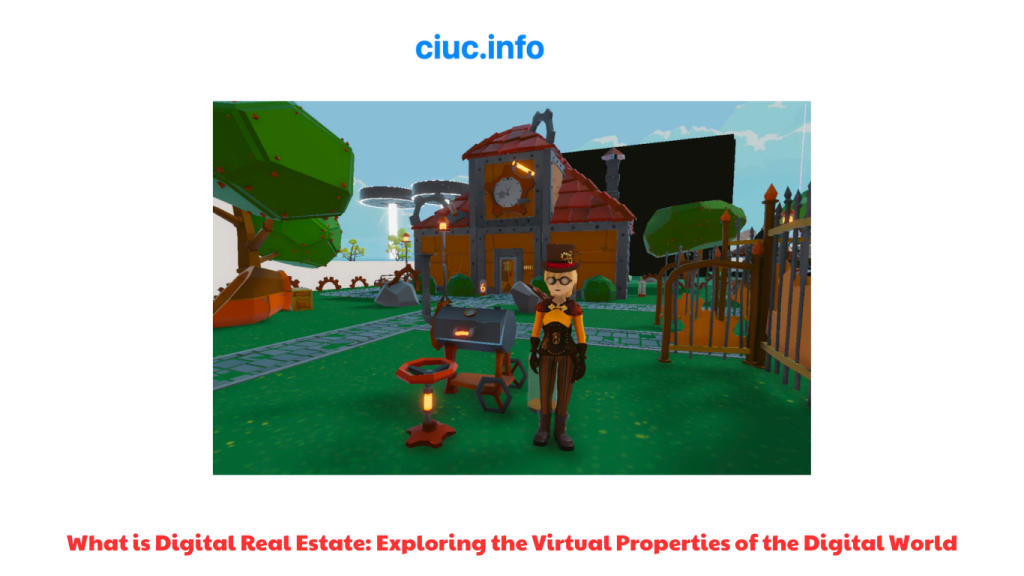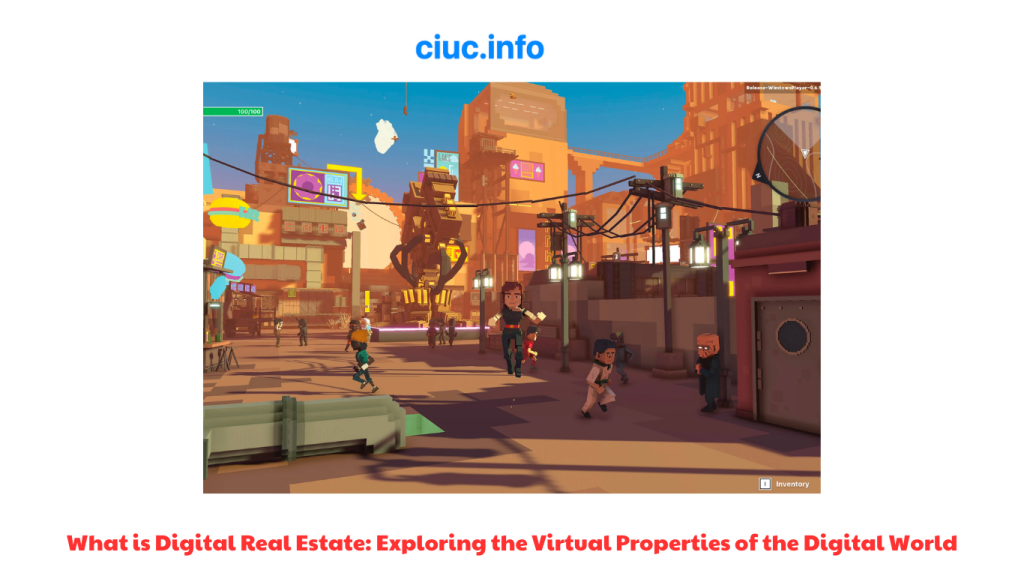What is Digital Real Estate
What is Digital Real Estate, the concept of real estate has expanded beyond physical buildings and properties to include a virtual realm known as “digital real estate.” Digital real estate refers to the virtual properties, spaces, and assets that hold value in the online world. These digital assets can include domain names, websites, social media accounts, virtual storefronts, and more. In this article, Ciuc will explore the fascinating world of digital real estate, its significance, and how it has become a valuable asset in the modern digital landscape.

- Understanding Digital Real Estate:
Digital real estate encompasses the properties and spaces that exist in the virtual realm. What is Digital Real Estate as physical real estate has value and can generate income, digital real estate holds similar characteristics. The value of digital real estate is derived from factors such as visibility, online presence, brand recognition, user engagement, and the potential for monetization.

- Domain Names as Digital Property:
What is Digital Real Estate of the primary components of digital real estate is domain names. A domain name is the unique address that identifies a website on the internet. It serves as the online identity of a business, brand, or individual. Premium domain names that are short, memorable, and keyword-rich hold significant value in the digital real estate market. They can be bought, sold, leased, or developed into websites to generate traffic, enhance brand recognition, and drive online business.

- Websites and Online Platforms:
What is Digital Real Estate and online platforms are key elements of digital real estate. A website serves as a virtual storefront, providing information, products, or services to users. The design, functionality, and user experience of a website greatly influence its value in the digital real estate market. Additionally, online platforms such as e-commerce marketplaces, social media networks, and content sharing platforms can also be considered digital real estate. These platforms provide opportunities for businesses and individuals to establish an online presence, connect with their target audience, and generate revenue through advertising, sponsorship, or e-commerce transactions.
- Social Media Accounts and Influencer Branding:
Social media has transformed into a significant component of digital real estate. What is Digital Real Estate media accounts, particularly those with a large following and high engagement, hold substantial value in the digital landscape. Influencers and brands leverage their social media presence to reach and influence their target audience, attracting partnerships, sponsorships, and monetization opportunities. The value of social media accounts lies in their reach, engagement, and ability to drive traffic and conversions.

- Virtual Real Estate and Virtual Worlds:
What is Digital Real Estate real estate extends beyond websites and social media accounts to encompass virtual worlds and virtual real estate. Virtual worlds are immersive digital environments where users can interact with each other and the virtual surroundings. Within these virtual worlds, users can own, buy, and sell virtual properties and spaces. These virtual properties can include virtual land, buildings, and virtual storefronts. The value of virtual real estate is driven by factors such as location, demand, scarcity, and the potential for in-world commerce and experiences.
- Monetizing Digital Real Estate:
Digital real estate holds immense potential for monetization. Website owners can generate revenue through various means, including advertising, affiliate marketing, e-commerce sales, and sponsored content. Social media influencers earn income through brand partnerships, sponsored posts, and collaborations. Virtual real estate owners can monetize their properties by renting or leasing virtual spaces for events, exhibitions, or commercial activities within virtual worlds.
Conclusion:
Digital real estate has emerged as a significant aspect of the modern digital landscape. From domain names to websites, social media accounts, and virtual properties, the value of digital real estate lies in its ability to generate visibility, reach, and revenue. As the digital world continues to evolve, the importance and potential of digital real estate are expected to grow. Understanding the dynamics of digital real estate and harnessing its potential can provide individuals and businesses with opportunities for growth, brand expansion, and financial success in the digital realm.
